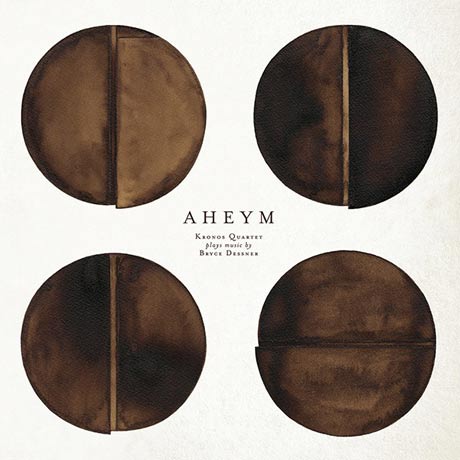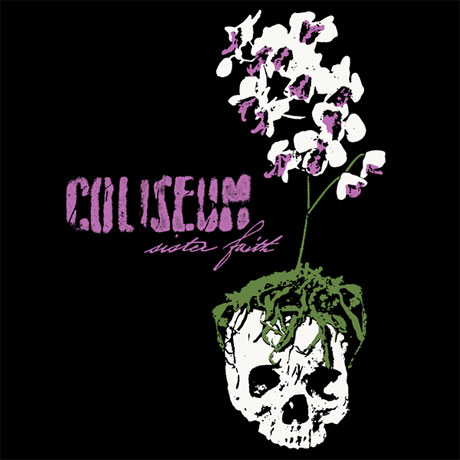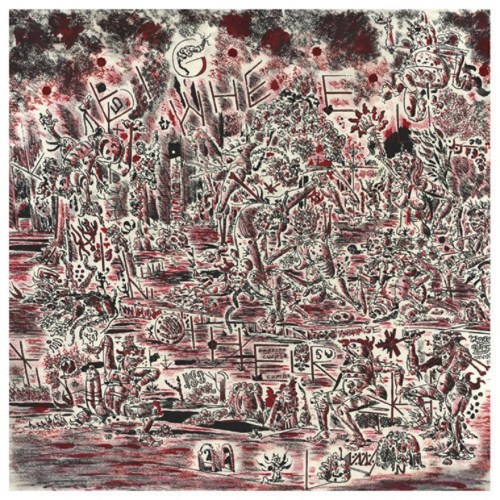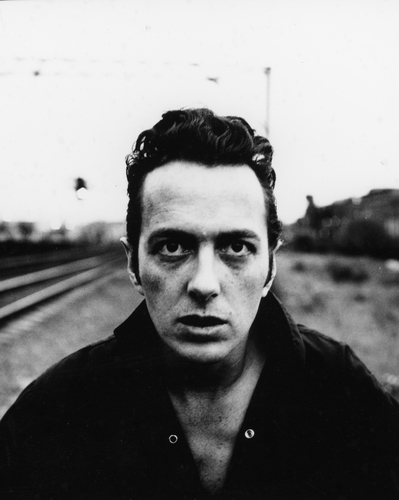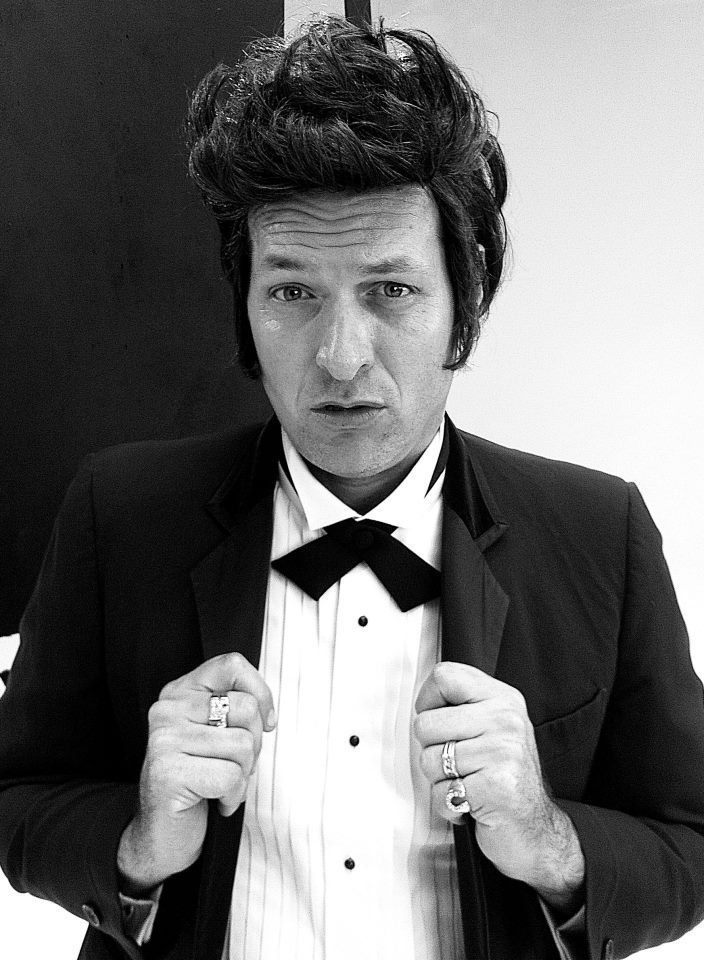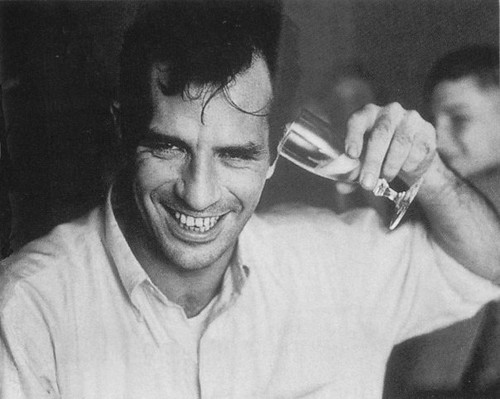25. Titus Andronicus - Local Business
The idea(s) behind this record alone makes it worth a spot on any best-of list. While the vast majority of the punk rock populace is busy shitting on everything and trying to feign coolness, these guys are throwing around positive ideas about how we can make living in the U.S. of A. great, and being wholly honest with themselves and their audience while doing it.
24. Retisonic - Robots Fucking
I actually didn't hear this one until just a couple of days ago when I saw it on someone else's best-of list, and I couldn't believe I hadn't already heard about it. If you're into bands like Bluetip, Kerosene 454, and Jawbox, this is a no-brainer.
23. Big Science - Difficulty
These guys are just a really good band. The tunes are perfectly catchy and danceable, with just the right amount of darkness - this record does an outstanding job of exploring the depths and peaks of the indie rock sonic pallet.
22. Spiritualized - Sweet Heart, Sweet Light
This is by far one of the densest records I have ever heard, arrangement-wise. At all times, you've got harmonies and unisons coming at you from every direction, and each song ebbs and flows within itself, expanding and contracting with an almost orchestral finesse. This one's cool enough to spin when you're hanging with your friends, but classy enough to take home to your parents.
21. Scoundrel - Freak Flag
If you like bratty, blown-out, poppy punk rock that is at its best in a crowded, sweaty basement, you're gonna want to hear this. These guys have played in a bunch of Chicago bands, and I for one hope this one's here to stay for a while.
20. Menomena - Moms
Some get heavy by de-tuning their guitars or sharpening up their double kick pedal skills or pinching their harmonics. In their 4-album career (so far), Menomena has continued to up their heaviness lyrically - and despite losing founding member Brent Knopf since their last album, they've also added weight in replacing him with 3 new live band members. In addition to the stellar, thought-provoking lyric department, the groove department also shines on this record.
19. The Sea & Cake - Runner
It's a mild early-September day and you're on a familiar beach with someone you really dig - that about sums up what this record feels like.
18. Suns - When We Were Us
I've seen this band go through a whole lot together (trailers catching on fire, tires blown, legal trouble, members lost/gained, etc.), and the end result is the product of harnessing all the wonderful and terrible shit that has happened to them, funneled into an ultimate labor of love. I've never heard these guys sound so hopeful and full of love for life as they do on these songs.
17. White Lung - Sorry
Three girls, a guy, and a fiercely aggressive, expertly executed punk rock record. It can be tough to find the balance between melody and cacophony when approaching such music, but vocalist Mish Way and guitarist Kenneth William walk that tightrope with a natural ease over a tightly woven net of thumping bass and drums.
16. Narrows - Painted
If you've heard Botch or These Arms Are Snakes, then you already know these guys know what the hell they're doing when it comes to sludgy, angular, riff-heavy hardcore. After a couple of clumsy early releases, it seems that the seasoned vets have found all their strengths and exploited them heavily on this brutal full-length.
15. Cursive - I Am Gemini
Tim Kasher, a man widely known for his ambitious songwriting undertakings, has quite possibly really outdone himself this time. The concept (something about identical twins, separated at birth, a "house that's not a home", some conjoined twin girls...) is a lofty one, and to complement the complexity of the narrative is probably the most technical mastery we've seen from Cursive to date.
14. Every Time I Die - Ex Lives
ETID's sixth full length certainly doesn't reinvent the wheel, but if there is a lack of fresh ideas the band certainly makes up for it in pure, unadulterated, aggressive enthusiasm. After tinkering around with a couple more melodic side projects (The Damned Things, Finale), singer Keith Buckley finds himself more inspired than anyone's heard since 2005's
Gutter Phenomenon and arguably at his best to date, both vocally and lyrically. Plus they got Danzig's guitarist to rip a gnarly solo on the slow classic rock ripper 'Revival Mode'.
13. David Byrne & St. Vincent - Love This Giant
It took me quite a while for my taste to come around to David Byrne/Talking Heads, but this record came just in time for me to be really excited about it - Annie Clark's being on the record, along with my appreciation for Byrne's
How Music Works book released earlier this year, certainly didn't hurt. With each listen, you get a great sense of the giddy natural highs that come with a fruitful collaboration between two distinct creative voices along with the dually trademarked introspection we've come to know from both Byrne and Clark.
12. P.O.S. - We Don't Even Live Here
Simply put, there really is just no one out there who compares to P.O.S. - as an artist, he continues to prove with every release that he's not running out of shit to say anytime soon, and you'd be hard pressed to find another rapper having half as much fun as he has doing it. Fans of
Never Better and
Audition will notice this time around that in the place of Fugazi samples and Big Lebowski references are heavy synths and beats that may be more at home in 'the club' than on your turntable, but the album certainly doesn't suffer for it. If anything it's just new territory that makes the album more exciting.
11. Meat Wave - Meat Wave
Few records over the last several years have proven to be as addictive as
Meat Wave has been for me. The aural taste buds are targeted one by one, and massaged with a tender aggression that this Chicago-born trio have honed carefully and seemingly carelessly on this debut release. It's this charming vulgarity that burrows into one's head like a tick and leaves me walking away from it every time humming "you're not my brother / you're not my brother / you're just another motherfucker's brother".
10. Converge - All We Love We Leave Behind
Do I really need to write anything about this? Come on, it's Converge. Just listen to 'Sadness Comes Home' and then proceed sulk about how you'll never be as good as Kurt Ballou at playing guitar.
9. Tight Phantomz - Silk Prison
This indie rock 'n roll epic of a double album has been a long time in the making. After 3 years of laboring over these 36 songs and playing the waiting game for a physical release, Mike Lust & Co. finally get to formally raise middle fingers to the mp3 generation with a hell of a collection of songs for just about every occasion. You might say
Silk Prison plays out like a well-balanced mixtape - you've got songs for the bar ('Sickening'), songs for the car ('No Island'), songs for the back porch ('Part of the Machine'), and plenty in-between.
8. Sharon Van Etten - Tramp
There's a certain undefinable quality about Sharon Van Etten's third studio effort that leaves the listener with a broad amalgamation of feeling, ranging from an innocent joy to a vague longing to lucid contentedness. It might be the ever-reverberating lead guitar lines creeping into all the empty spaces between sparsely strummed acoustic rhythm parts; or the almost always-present flawless vocal harmonies; or the highly personal yet translatable and nostalgic nature of the songs; or just the pure simplicity of the whole thing.
Tramp, like a cozy apartment, makes you want to actually live in it.
7. Ceremony - Zoo
There was a kid named Andy who sat next to me on the school bus in junior high who used to take my bulky student trumpet case and repeatedly ram it into my side every single morning until the bus finally arrived at school. Quietly sitting at my desk with my headphones on, blaring this record, I can't help but be reminded of those days, of Andy and my trumpet case. From the first seconds of the album, the listener is assaulted with a barrage of chaotic cacophony that eventually eases into the four-on-the-floor, driving opener, 'Hysteria', and aside from a few more chilled-out moments, this pace is carried on throughout the album. Fans of early punk and hardcore, along with fellow revivalists like The Men, Iceage, and Off! would be remiss to ignore
Zoo.
6. Metz - METZ
Without a safety net of repetitive melodies or outlandish production, Toronto's Metz have crafted a debut full-length out of an auditory sense of panic - a panic comprised of calculated noise, thrashing drums, and propulsive, driving bass lines. These guys just don't fuck around.
5. The Life & Times - No One Loves You Like I Do
When writing about The Life & Times, it's nearly impossible not to use guitarist/vocalist Allen Epley's previous band, Shiner, as a sort of reference point. As unfair as that may be to the band, just as it is to compare one's current partner to an ex,
No One Loves You Like I Do would hold up next to Shiner's best material and gleam just as bright. (The reader should be made aware that the author holds Shiner up on a rather tall pedestal. This is a high compliment, coming from the author.) The album, consisting of obsessive vignettes exploring the darkest corners of love and lust, has a unique anonymity achieved with the help of its song-titling (Day 1, Day 2, Day 3, etc.) and Epley's open-ended and almost omniscient lyrics, which manage to weave through all the common extremes a man feels in the throes of passion. Alongside the lucid songwriting you'll hear the stoner-friendly onslaught of larger-than-life drum and bass assailment and spaced out guitar explorations that the band has become known for over the better part of the last decade.
4. WHY? - Mumps, etc.
"When I got better from the mumps, yes, my swollen nut and neck shrunk" - the album's opening line, as strange as it may sound to the uninitiated, is the warmest welcome a WHY? fan could have asked for when first indulging in this much-anticipated record. Those familiar with emcee Yoni Wolf's darkly humorous, confessional-style songwriting surely won't be disappointed with his continued saga into the weird and into the profound highs and lows of the modern human condition.
Mumps, etc. serves as a strong bridge between the low-fi, left field hip hop-heavy experimentations of earlier WHY? records and the more highly refined indie rock found on the band's last couple releases.
*If I'd made a list of the Best Songs of 2012, 'Sod in the Seed' would have been #1.
3. Torche - Harmonicraft
It's not easy to break any sort of new ground in the world of heavy rock music, and it certainly doesn't happen every day (or even every year or three) - but Torche found a loophole that somehow reconciles major-key rejoice and their gloomy brand of sludge rock we've come to celebrate. The shift into these more arena-ready, anthemic jams may or may not have been assisted by the addition of ex-Riddle of Steel frontman Andrew Elstner on guitar. Either way, this record just dumps cement all over the already distinct footprint Torche has left on the rock scene.
2. Father John Misty - Fear Fun
Josh Tillman has been known by some for a while now as a deeply somber, contentedly obscure singer-songwriter going by the name J. Tillman. As he points out in
Fear Fun's closer, 'Everyman Needs a Companion', he simply "got tired of J. [Tillman]", and quickly felt the need to unite his songwriting persona with the quirky, quick-witted, satirical voice he identifies as the voice of his true self. Ironically, this meant taking up the new moniker, Father John Misty - after all, his given name had already been taken.
Fear Fun is the journey of a man finding himself within his own novel, inspired by psychedelic mushrooms and a coastal road trip which led to the claiming of his new home in Los Angeles' Laurel Canyon. Naturally, the sunshine and freak show has breathed a new kind of life into Josh Tillman, and he wears the newly embraced aspects of this voice rather well.
1. Japandroids - Celebration Rock
It takes a lot to make a grown man revert to a younger self, to inspire him to raise a glass in one hand and a fist in the other and shout his lungs out, to truly celebrate life and youth and music. Actually, it only takes two guys from Vancouver, a guitar and a drum kit, and a few 'whoa-ohs' and sing-along choruses. The album's perfectly appropriate bookends, consisting of the sounds of a fireworks show, hold within a truly triumphant display of gratitude to one of life's greatest gifts: rock 'n roll. The brevity of
Celebration Rock's 8-song burst of raw energy simply emphasizes the record's poignancy and proves that Japandroids are only out to lay it all on the line, to offer the rock gods their absolute best. The rock gods smile upon you this year, Japandroids.

